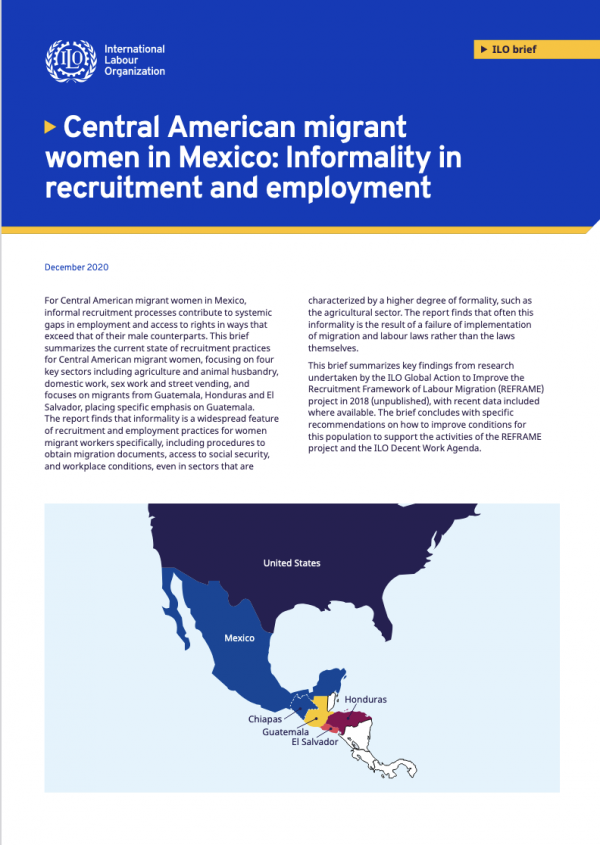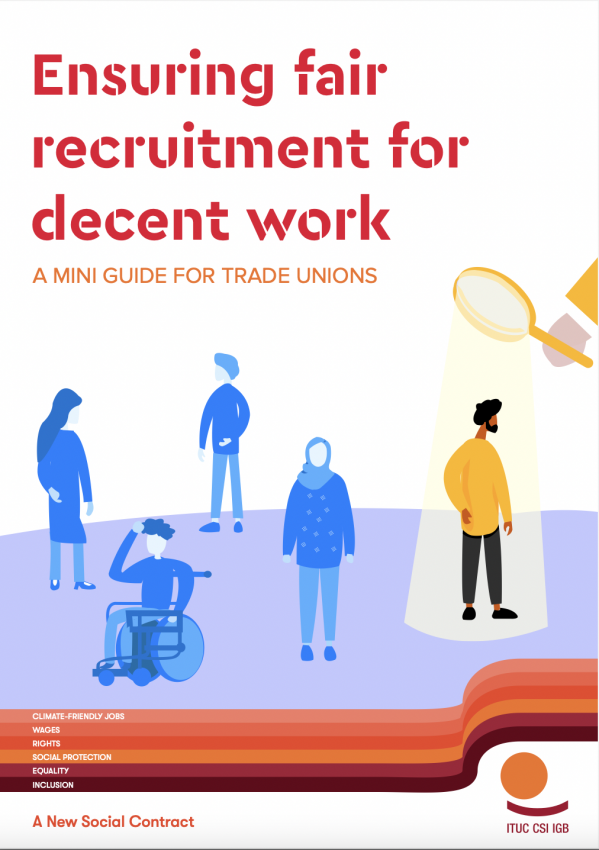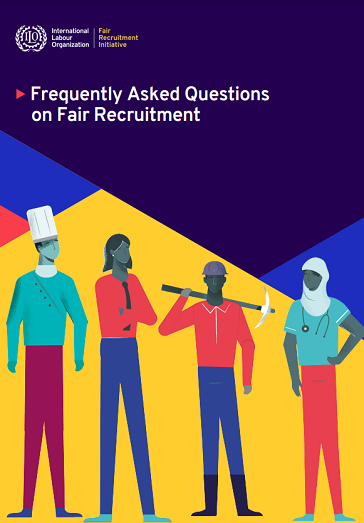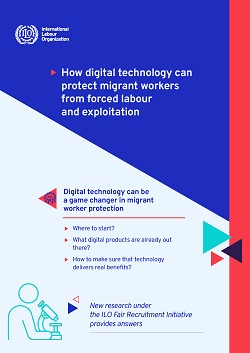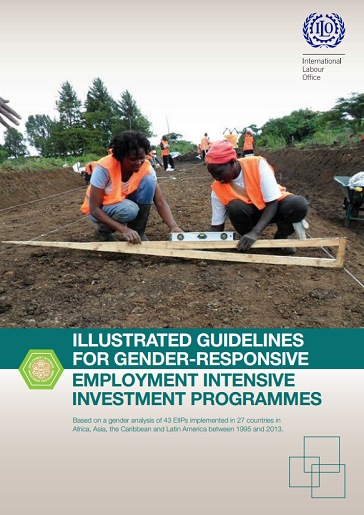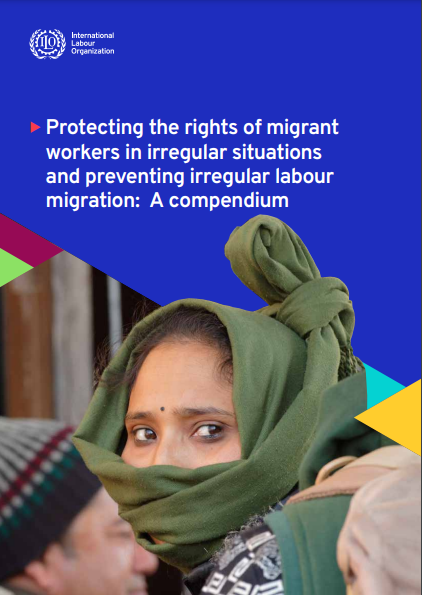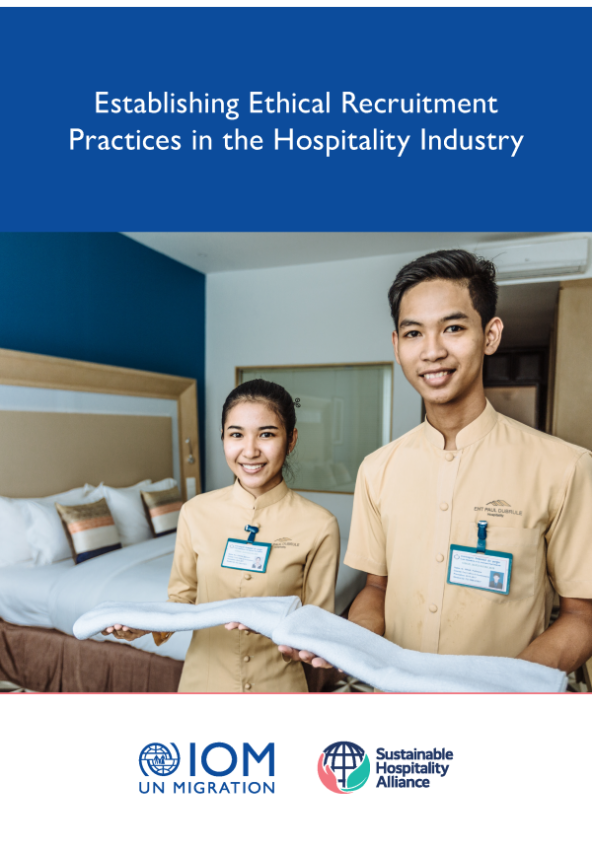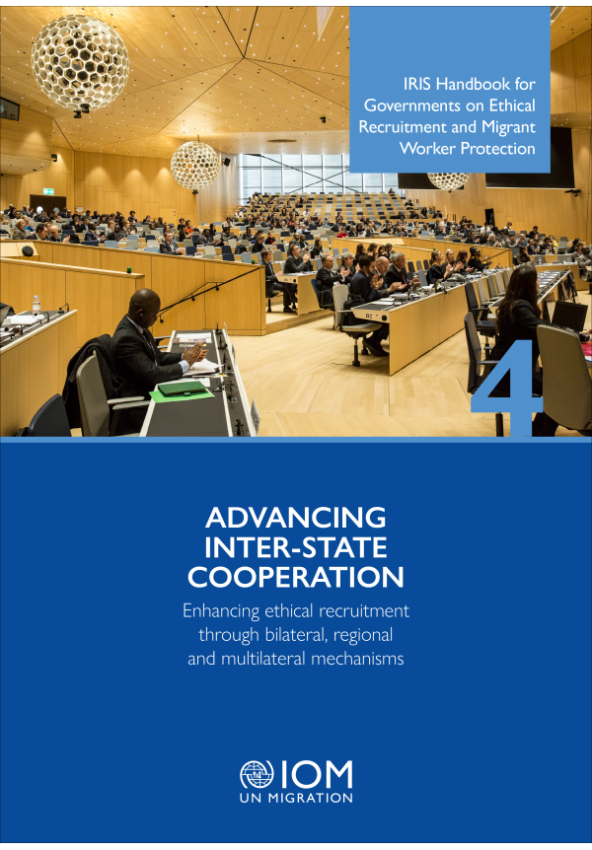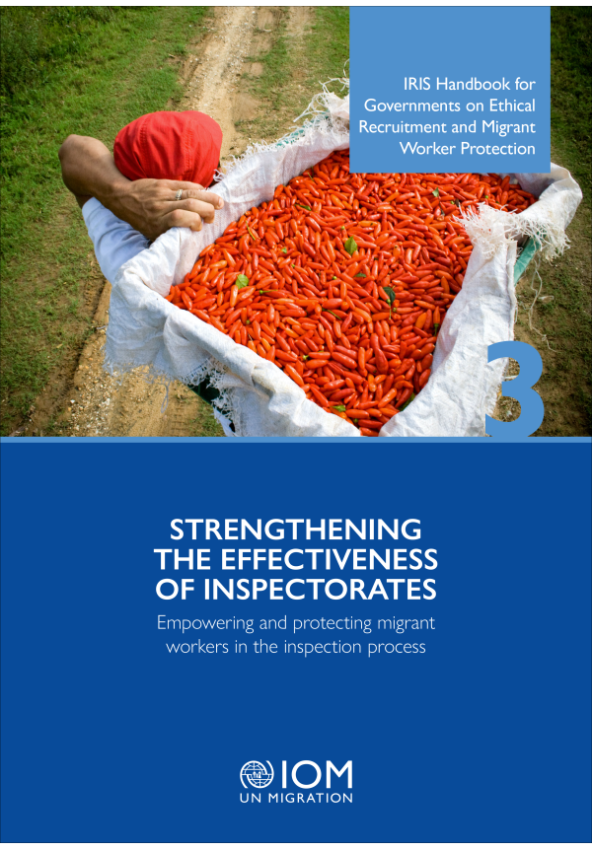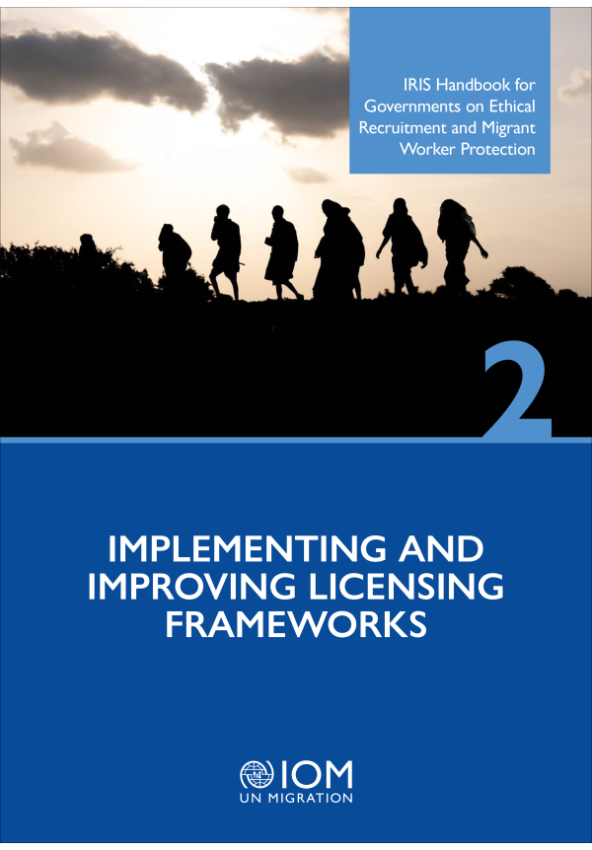Central American migrant women in Mexico: Informality in recruitment and employment
This brief summarizes key findings from research undertaken by the ILO Global Action to Improve the Recruitment Framework of Labour Migration (REFRAME) project in 2018 (unpublished), with recent data included where available. The brief concludes with specific recommendations on how to improve conditions for this population to support the activities of the REFRAME project and the ILO Decent Work Agenda.
Type of document :
Country/Region :
Year of publication :
Theme :
Ensuring fair recruitment for decent work - A mini guide for trade unions
This mini guide focuses on how can trade unions advance fair recruitment and what is fair recruitment.
The mini guide is available in Arabic, French, English, and Spanish.
Type of document :
Country/Region :
Year of publication :
Theme : ,
Frequently asked questions on fair recruitment
The ILO has developed this series of Frequently Asked Questions (FAQs) on fair recruitment challenges to respond to questions commonly received by constituents. The FAQs are designed to provide user-friendly answers to technical questions related to the implementation of fair recruitment in practice.
Type of document :
Country/Region :
Year of publication :
Theme : , ,
How digital technology can protect migrant workers from forced labour and exploitation
Digital technology can be a game changer in migrant worker protection. But where to start? What digital products are already out there? How to make sure that technology delivers real benefits? A new research under the ILO Fair Recruitment Initiative provides answers.
This infographic report features tips and advice on how to design, develop and promote digital products for migrant workers. It is based on the ILO research “Use of digital technology in the recruitment of migrant workers” (2021).
Type of document :
Country/Region :
Year of publication :
Theme : , , ,
Illustrated guidelines for gender-responsive employment intensive investment programmes
This guide is the outcome of a study carried out on gender and public works, and has been developed using evidence from 43 EIIPs implemented in 27 countries in Africa, Asia, Latin America and the Caribbean between 1995 and 2013.
Good practices include experiences in fair recruitment in Ghana, Kenya, Sierra Leone, Uganda, Indonesia, Haiti, Guatemala and Nicaragua.
Type of document :
Country/Region :
Year of publication :
Theme : , , , ,
Protecting the Rights of Migrant Workers in an Irregular Situation and Preventing Irregular Labour Migration: A Compendium
The Compendium presents the situations that can lead migrant workers into irregularity, the rights of migrant workers in irregular situations, and the relevant international standards and good practice. It highlights laws, policies and practices that can help prevent irregular labour migration, and facilitate respect and promotion of the human rights of all migrant workers, regardless of status”. The Compendium is not intended to be exhaustive but is instead a living document that will be regularly updated with new examples and experiences. It seeks to encourage the sharing of good practices by states, social partners, and other actors concerned and to contribute to the attainment of the objectives of the Global Compact for Safe, Orderly and Regular migration.
Some of the references will be further updated in early 2022.
Type of document :
Country/Region :
Year of publication :
Theme : , , , ,
Establishing Ethical Recruitment Practices in the Hospitality Industry
This document provides practical guidance for the hospitality industry on how to ethically recruit international migrant workers within business enterprise operations and supply chains. It has been developed by IOM in partnership with the Sustainable Hospitality Alliance.
This guidance aligns with ethical recruitment principles from IOM’s IRIS Ethical Recruitment initiative and the IRIS Standard, which is a global, multi-stakeholder standard that defines and establishes an operational benchmark for ethical recruitment. It is also closely aligned with the Sustainable Hospitality Alliance’s Principles on Forced Labour: (a) every worker should have freedom of movement; (b) no worker should pay for a job; and (c) no worker should be indebted or forced to work.
This guidance is global in nature and designed primarily for hotels. It is applicable to both multinational enterprises and small- and medium-sized enterprises. It can also serve as a resource for other tourism-related industries, as the principles of ethical recruitment are universal.
Guidance Notes and Tools
Guidance Note A: Establishing Ethical Recruitment Practices in the Hospitality Industry
Guidance Note B: Building the knowledge and capacity of hotels to implement ethical recruitment
Guidance Note C: Working with civil society and including migrant worker voice
Tool 1: Working with labour recruiters and employment agencies
Tool 2: Interviewing migrant workers about their recruitment and employment experiences
Tool 3: Incorporating ethical recruitment into procurement practices
Tool 4: Access to remedy and business grievance mechanisms
Tool 5: Frequently asked questions about migrant workers and recruitment
Type of document :
Country/Region :
Year of publication :
Theme : , , , ,
IRIS Handbook for Governments on Ethical Recruitment and Migrant Worker Protection: Chapter 4 – Advancing inter-State cooperation
This resource is the fourth chapter of the IRIS Handbook for Governments on Ethical Recruitment and Migrant Worker Protection. With direct relevance to inter-State labour migration governance mechanisms and processes, it provides governments with practical guidance on how to integrate, mainstream and prioritize ethical recruitment in these cooperative activities.
The chapter covers a broad range of relevant topics including: the value and benefits of inter-State cooperation in international labour recruitment governance; the landscape of relevant labour migration mechanisms and processes (including labour migration agreements and inter-State consultation mechanisms); and specific guidance and examples of how to advance and prioritize ethical recruitment in these endeavours. Guidance is intended for government officials in their capacities as negotiators, regulators, inspectors, labour attachés and consular officials at different levels of administration (national, subnational) and across relevant portfolios (labour and employment, migration, foreign affairs, etc.).
The IRIS Handbook is IOM’s flagship global guidance tool for governments on ethical recruitment and migrant worker protection. It builds directly on the Montreal Recommendations on Recruitment: A Road Map towards Better Regulation with more detailed measures for consideration, and profiles relevant concrete actions that governments around the world have taken.
Type of document :
Country/Region :
Year of publication :
Theme : , , ,
IRIS Handbook for Governments on Ethical Recruitment and Migrant Worker Protection: Chapter 3 – Strengthening the effectiveness of inspectorates
This resource is the third chapter of the IRIS Handbook for Governments on Ethical Recruitment and Migrant Worker Protection. It provides governments with practical guidance on how to strengthen the effectiveness of inspectorates to ensure that migrant workers are empowered and protected during the inspection process.
The chapter covers a broad range of relevant topics including setting up an effective inspectorate in law and practice (legal framework, monitoring and enforcement strategy, resources, process and decision-making, collaborative approaches) and migrant-sensitive inspection approaches and methods (facilitative conditions for migrant workers, inspection modalities, interview techniques). Guidance is intended for government officials in their capacities as inspectors at various levels of administration (national, subnational) and across relevant portfolios (labour, migration, consumer protection, etc.). It can be applied in countries of origin, transit and destination.
The IRIS Handbook is IOM’s flagship global guidance tool for governments on ethical recruitment and migrant worker protection. It builds directly on the Montreal Recommendations on Recruitment: A Road Map towards Better Regulation with more detailed measures for consideration, and profiles relevant concrete actions that governments around the world have taken.
Type of document :
Country/Region :
Year of publication :
Theme : , , ,
IRIS Handbook for Governments on Ethical Recruitment and Migrant Worker Protection: Chapter 2 – Implementing and improving licensing frameworks
This resource is the second chapter of the IRIS Handbook for Governments on Ethical Recruitment and Migrant Worker Protection. It provides governments with practical guidance on how to implement and improve the administration of private international labour recruiter frameworks, with an emphasis on ensuring recruiters are competent in and accountable to ethical recruitment principles.
The chapter covers a broad range of relevant topics including: knowledge of ethical recruitment standards (information and educational options); licence application and assessment (screening process, eligibility and requirements); licence features and conditions; and accountability measures (oversight and transparency). Guidance is intended for government officials in their capacities as regulators and inspectorates of private labour recruiters at various levels of administration (national, subnational) and across relevant portfolios (labour, immigration, consumer protection, etc.). It can be applied in countries of origin, transit and destination.
The IRIS Handbook is IOM’s flagship global guidance tool for governments on ethical recruitment and migrant worker protection. It builds directly on the Montreal Recommendations on Recruitment: A Road Map towards Better Regulation with more detailed measures for consideration, and profiles relevant concrete actions that governments around the world have taken.
Type of document :
Country/Region :
Year of publication :
Theme : , , , , ,
Subscribe to the Fair Recruitment Initiative Newsletter
Sign up to receive news delivered to your inbox.

